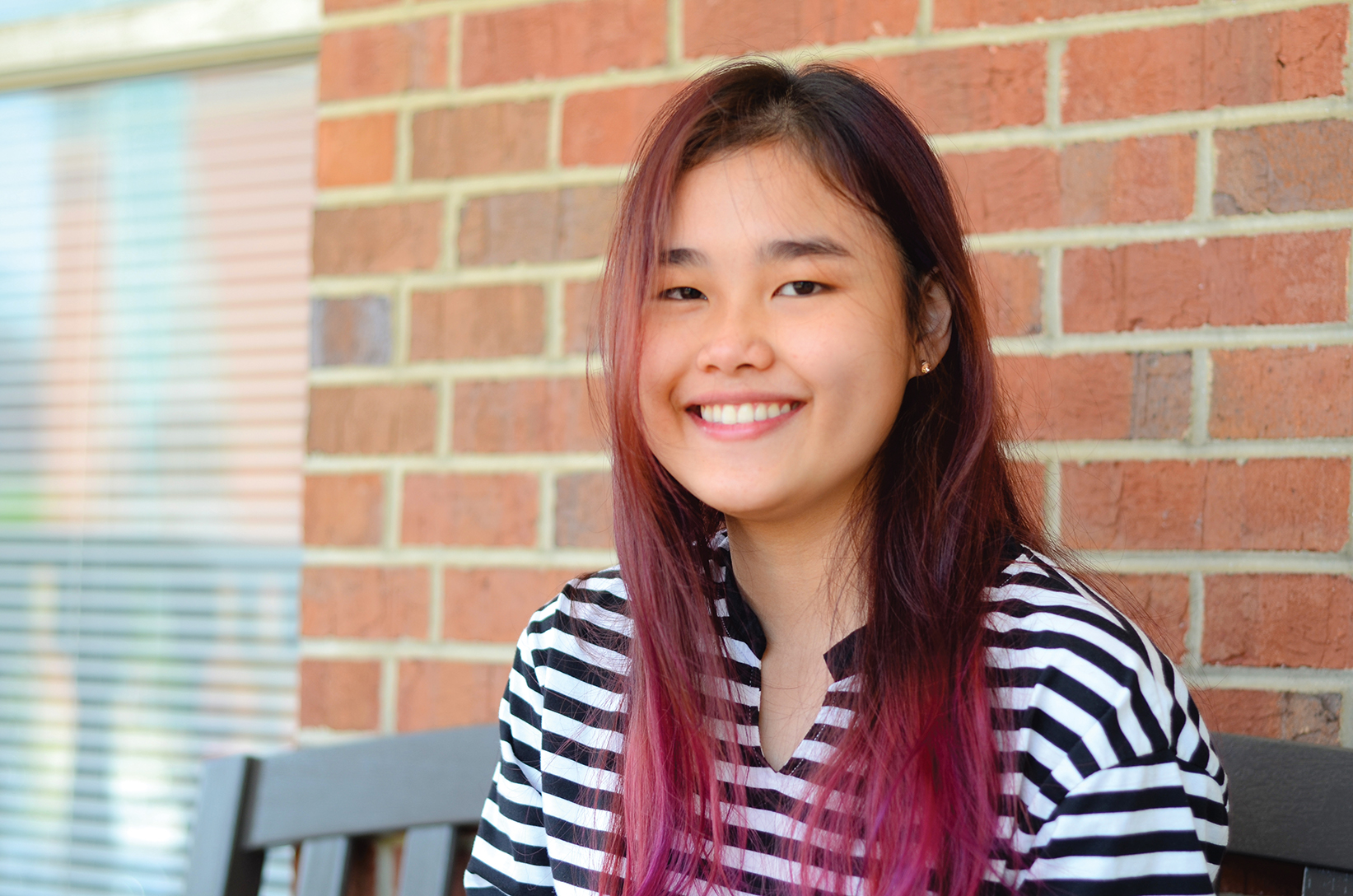 Vi Kim Ngo is one of the students who has come to UAB through the INTO partnership. Photo by Ian Keel
Vi Kim Ngo is one of the students who has come to UAB through the INTO partnership. Photo by Ian KeelMark Linn - Copy Editor
copy@insideuab.com
The first new students recruited through UAB’s work with INTO University Partnerships have already arrived at UAB and have begun taking classes this summer.
Around 30 students from several countries including China, Thailand and Yemen have already enrolled in classes, with another 100 signed up for the fall semester.
International students at UAB have to deal with many of the same challenges as domestic students, such as being away from home for the first time and taking on increased academic expectations. They also face other challenges, such as language barriers and culture shock.
“What I really like about teaching is connecting with the students and the opportunity to get to know them as people,” said Bryan Lowry, an English as a Second Language instructor at UAB.
“When students come to us they are at a very challenging time in their lives, right? So they might have just graduated high school and might be 17 or 18 years old, they’ve never lived away from their family and suddenly here they are.”
One of the new students is Vi Kim Ngo, who grew up in Ho Chi Minh City, Vietnam. After graduating high school, Ngo began studying hotel management at a college in Vietnam, but had second thoughts about her chosen field.
“I felt like I didn’t like that career, so I changed my mind and I said [to] my mom that I wanted to study abroad,” Ngo said.
She was recommended to UAB by her sister, who also attended the university. Ngo’s sister told her that U.S. had the best education system and that UAB was a great school to study and learn English.
Prior to arriving at UAB back in April, she had some idea of what living in the U.S. might be like, having been exposed to U.S. culture through movies and TV and having visited relatives in Atlanta on a few occasions. Although she has not had much time to become acclimated to UAB and Birmingham, she compared it favorably to Atlanta, saying that the latter city was very noisy and crowded with traffic, while Birmingham is relatively peaceful in comparison.
The process of obtaining a visa to come study in the U.S. from Vietnam is filled with multiple requirements. Ngo failed to meet them all on her first attempt but was accepted on her second try after studying and ensuring that all of her required documents were prepared.
“You have to be a good student in high school and university, you have to have enough money to study in the U.S. and you have to come back to Vietnam after graduation,” Ngo said.
While she has not completely settled on where she wants to focus her studies, as of now she hopes to return to Vietnam as a teacher – specifically to teach mathematics, which she says was her best subject in high school.
One of the key programs to help international students succeed at UAB has been the International Mentor program, which will continue to be prominent with the expansion of INTO. International mentors help new students become familiar with UAB and Birmingham, plan monthly outings for them and give advice on everything from how to find an apartment or a job to what to expect from different UAB professors. International mentors are often international students themselves, and are familiar with the difficulties some new students might face with culture shock. One such student mentor is Xinyu Zhai, a teaching English as a second language major who came to UAB from China last year.
“I meet with the new students and I help them; sometimes I translate if they are Chinese students because my first language is Chinese,” Zhai said. “So during orientation I translate, I explain, I take them through the campus and those kinds of things to help them settle down.”
Zhai said that he became a student mentor because he appreciated the help he received when he had first arrived at UAB and hoped to provide the same help to the new students arriving through INTO.
“When I first came here, I came here in 2014. I didn’t know anything about the United States and I was very worried and nervous,” Zhai said. “I got some help from some student assistants at that time and I felt that INTO was a great help for me. And now I’m doing the same thing as they did, so I’m trying to help the students feel better and to get the same help or even better help than I got.”


